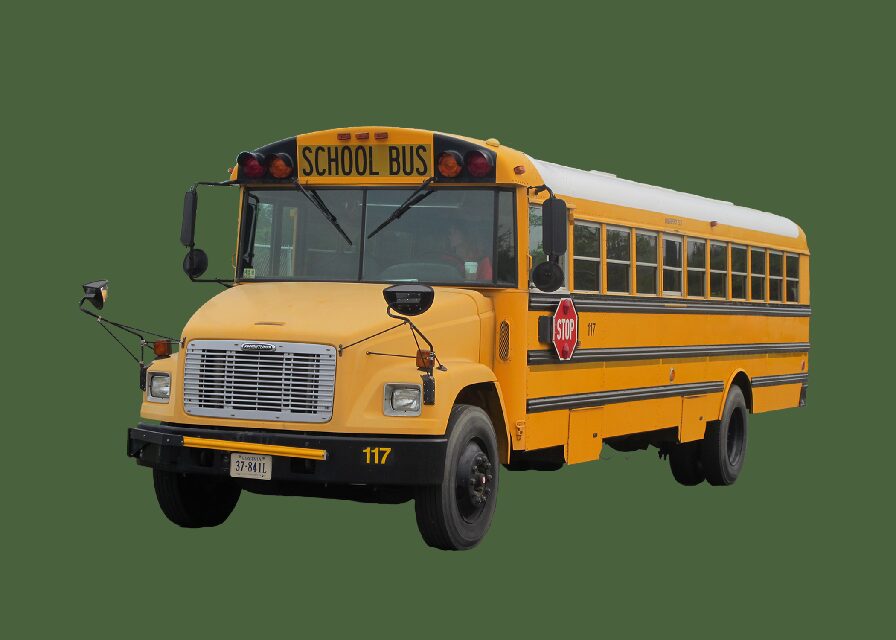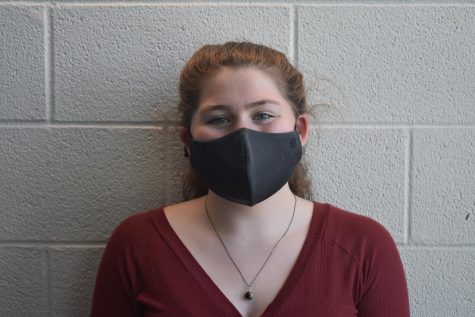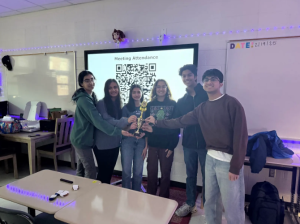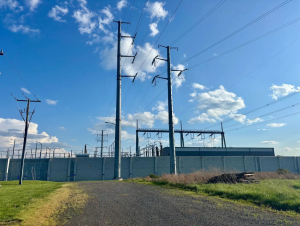Electric Buses Power Up School Fleets
With gas prices on the rise due to inflation, the Russia-Ukraine conflict, and the ongoing threat of global warming, electric vehicles are paving the future of school transportation. Since May 2021, LCPS has been testing the idea of an electric transportation fleet with five electric buses at Park View High School.
According to the American Automobile Association, as of March 29, the average diesel price per gallon in Virginia was $5.091, slightly below the national average of $5.127. Last year, Virginia’s average was $2.918.
April 1, 2022
As school buses make their way down winding western Loudoun backroads to pick up students, they leave behind a toxic trail of ozone-melting carbon emissions. These emissions are fueled by diesel gas, which, as of the end of March, runs for upwards of five dollars a gallon in northern Virginia. Schools in Virginia and across the nation have already begun implementing an environmental and ideally cost-effective solution: electric buses.
Due to inflation, gas prices were already high before the Russia-Ukraine war. However, according to The Wall Street Journal, Russia makes up about 8% of U.S. imports of oil and refined products, and is now facing economic sanctions from the U.S., causing prices to reach all time highs. Currently, school buses run on diesel fuel, with the exception of smaller Type A buses used for students with special needs, which run on gasoline. Bus transportation is funded by the county as part of the LCPS overall budget, and residents may be wondering if these fuel costs will be coming out of their next paycheck.
Loudoun County has entered into a contract with Coral Petroleum to supply their fuel for a fixed rate of $2.38 per gallon for diesel and $2.36 for gasoline during the 2021-2022 school year. However, as the school year comes to a close, budgets are being discussed for the 2022-2023 school year, and the contract is not only yet to be finalized, but it is also up for bid. “Right now we’re okay,” Scott Davies, LCPS director of transportation services, said. “The challenge for us will be later on in June for next year’s [budget]. We’re working through it right now.”
Gas prices may not be an issue for school buses in the current school year, but the same can’t be said for the bus drivers themselves. “I leave home at 5:30 in the morning, so I can get all the traffic lights — there’s 13 of them — green [on my way to work]. No stop and go,” school bus driver Jeronimo Castellanos said. “Nine times out of 10, I do that. Even though I show up an hour early, it saves me [gas money].” LCPS buses are parked in a lot provided by the county or at designated schools, and to use them for the school day, school bus drivers need to drive their personal vehicles to that location. Castellanos is also considering finding a route to ride his bike to work to avoid paying for gas entirely.
Davies said that Loudoun County has already been taking strides to incentivize drivers to join LCPS in light of the recent bus driver shortage. One of the plans is to implement a space at the bus parking lot facilities for drivers to rest between their morning and afternoon shifts. This would help with the costs of commuting to and from work, as they would only need to drive to and from the parking lot once. “My top priority is on recruiting our drivers and keeping the drivers that we have and supporting them every way I can,” Davies said.
This implementation would solve a restroom dilemma for drivers. Bus drivers arrive at the schools very early in the morning and do not have a place to go to the bathroom until their morning shifts are over, adding up to about three hours. “We don’t have access to the buildings at six o’clock in the morning,” Castellanos said. “Even though we have badges, we aren’t cleared to enter the buildings.”
However, perhaps one of the largest incentives for bringing in more drivers is the option of driving an electric bus. Even before the Russia-Ukraine war and inflation driving up gas prices, LCPS and schools around the nation have been investing in electric vehicles to combat pollution.
Electric buses work similarly to the regular diesel-powered models, but lack the amount of polluted fumes. “I noticed that if I don’t keep the [diesel-fueled] bus ventilated, my eyes will turn red, even within the [Occupational Safety and Health Administration] standards,” Castellanos said. “[Electric buses] would be better for the students’ brains so they won’t get infected with all the fumes.”
According to the Environmental Protection Agency, diesel exhaust from school buses contributes to significant levels of particulate matter (PM) and NOx emissions. PM is linked to many harmful medical effects including aggravated asthma, decreased lung function, and premature death when lodged deep into the lungs and heart through these diesel emissions. Furthermore, children are far more susceptible to these conditions when compared to healthy adults due to their developing respiratory systems and faster breathing rates. Even beyond the cabin of the bus, this pollution can enter school buildings and facilities through air intakes, doors, and open windows. In general, the air pollution created from these vehicles can lead to ozone pollution, acid rain, and climate change as a whole.
In May 2021, LCPS introduced their first installation of five electric buses at Park View High School, and during the week of March 7, 2022, placed an order for six more buses to be used at Cardinal Ridge Elementary School for the 2022-2023 school year. There are also plans to purchase 10 more electric buses next year; five electric buses would be added to the fleet at Cardinal Ridge and the other five would be based in the western schools — these would be long-range buses that could serve on the more lengthy and rural routes of the county.
In addition to being better for the environment, electric buses are also a lot quieter and offer a smoother riding experience. “[Our bus rides] are very jerky,” senior Jada Bey said, who rides a diesel-fueled bus to school. “In the mornings, I sleep on the bus, and when I’m being jerked around I often hit my head on the window.” Bey says she would “absolutely” like to ride an electric bus.
Bey and other bus riders like her are not the only ones who enjoy comfortable trips to school. “Our drivers love these [electric] buses,” Davies said. “They’re quiet and responsive.” The quietness of the electric buses is due in part to the fact that they have less moving mechanisms when compared to a regular diesel-fueled bus; one positive result of this is the money saved on maintenance.
Even with all of these fancy features, Davies says it is still important to keep in mind that this is new technology. “[LCPS] is buying different brands of buses so we can try out what other companies have to offer and see which is most reliable and most efficient,” Davies said.
The buses in operation at Park View High School are manufactured by Thomas Built Buses and are of the Saf-T-Liner® C2 Jouley™ electric bus model. From the outside, these buses look exactly like the nostalgic yellow diesel-fueled buses, but are instead equipped with a Proterra battery. You can learn more about the batteries, range, capacity, and other features of this model here.
The pilot program for clean bus transportation is analyzing the results from the buses at Park View High School. “We’re still gathering data on how reliable our electric buses are, the efficiency of them, the amount of energy they use and their range,” Davies said. They have already discovered that the battery efficiency during the winter season is a potential drawback. “Not only because it’s cold and those batteries need to be kept at a certain temperature, but also when you turn the heat on for the inside of the cabin, it’s electric heat, and that takes a lot of energy out of the battery to heat up the entire space of that bus.”
Another concern is the price tag that comes with electric buses. Davies said that the average cost of a regular bus is around $135,000, which is a far leap from the electric bus price tag of around $380,000. However, taxpayers don’t necessarily need to panic. “Right now, we haven’t spent any more on electric buses than we would have otherwise on diesel buses because the difference in cost has been provided through grant funding,” Davies said. The five buses at Park View High School were paid for in part by a grant from Dominion Energy, and LCPS is currently in the process of applying for a grant from the Department of Environmental Quality from the state, as well as funds from the Volkswagen Environmental Mitigation Trust through the Clean School Bus Program. This trust accounts for $93.6 million dollars and $20.15 million is solely dedicated to clean school buses.
Though they have a high initial cost between buying the buses and installing charging stations, as well as the actual cost of electricity, electric buses have a high potential of saving costs down the road. “We should see our costs go down both in terms of fuel and maintenance overtime,” Davies said.
Castellanos has been driving for LCPS for nine years and drove buses in the U.S. Air Force and for Verizon before that. “I know [electric buses] have their limits,” Castellanos said. “[However], in the long run, I think it’s beneficial for everybody.”
“We don’t want to make careless decisions, especially when we’re talking about taxpayer dollars,” Davies said. “We want to be making smart decisions. [Electric buses] require such a huge investment, and where that investment comes from and how that gets executed is still to be determined.”
No matter what vehicle they are driving, bus drivers are happy to be able to interact with their students. “The students that I have are commendable,” Castellanos said. “They’re all well-behaved, kindergarteners on up. I’m blessed that our society is in good hands.”
The takeaway: electric buses are on trial. They offer a solution to jerky rides, air pollution, and sky-high gas prices, but they also come with a high initial cost and problematic batteries during the winter months. With President Joe Biden’s push towards electric vehicles and environmental protection, community members might be seeing more of these electric buses winding down the western Loudoun backroads to pick up students, without the toxic trail of ozone-melting carbon emissions.

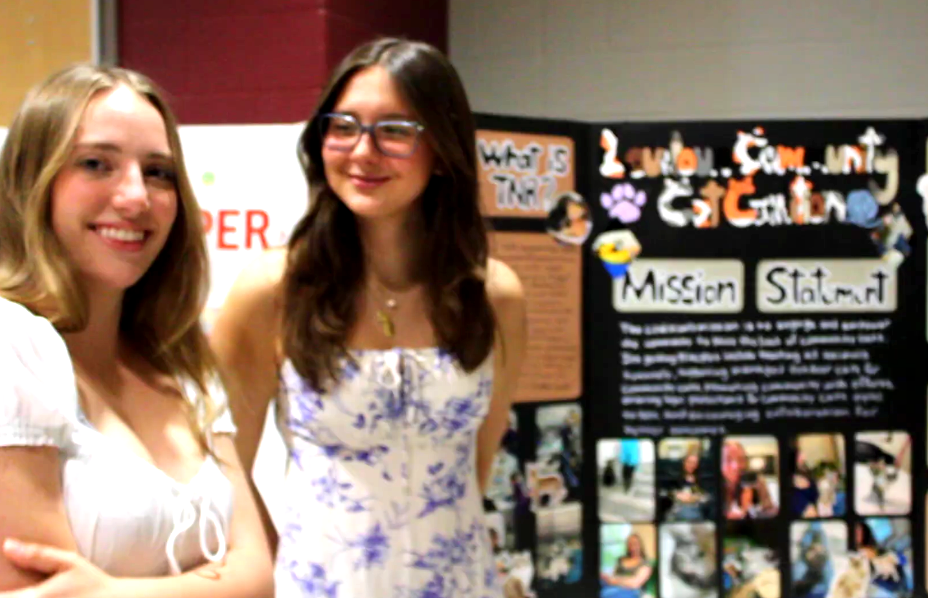







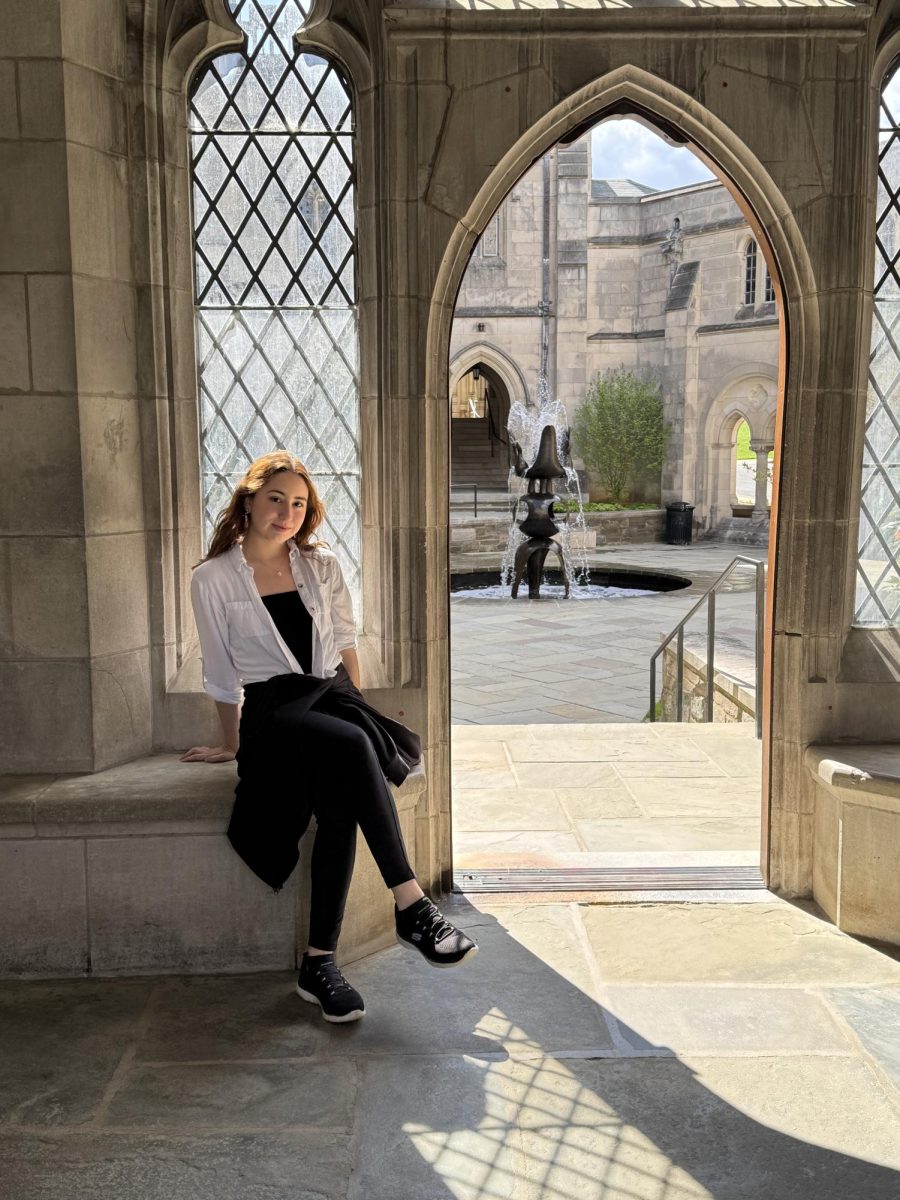







![The Phoenix varsity volleyball team lines up for the national anthem. “We were more communicative [with each other] during this game, and I feel like we kept our energy up, especially after the first set,” senior Jessica Valdov said.](https://theblazerrhs.com/wp-content/uploads/2024/10/DSC_0202-1200x800.jpg)








![Junior Alex Alkhal pitches the ball. “[I] just let it go and keep practicing so we can focus on our goal for the next game to get better as a team,” Alkhal said.](https://theblazerrhs.com/wp-content/uploads/2025/05/DSC_0013-1-1200x929.jpg)



















